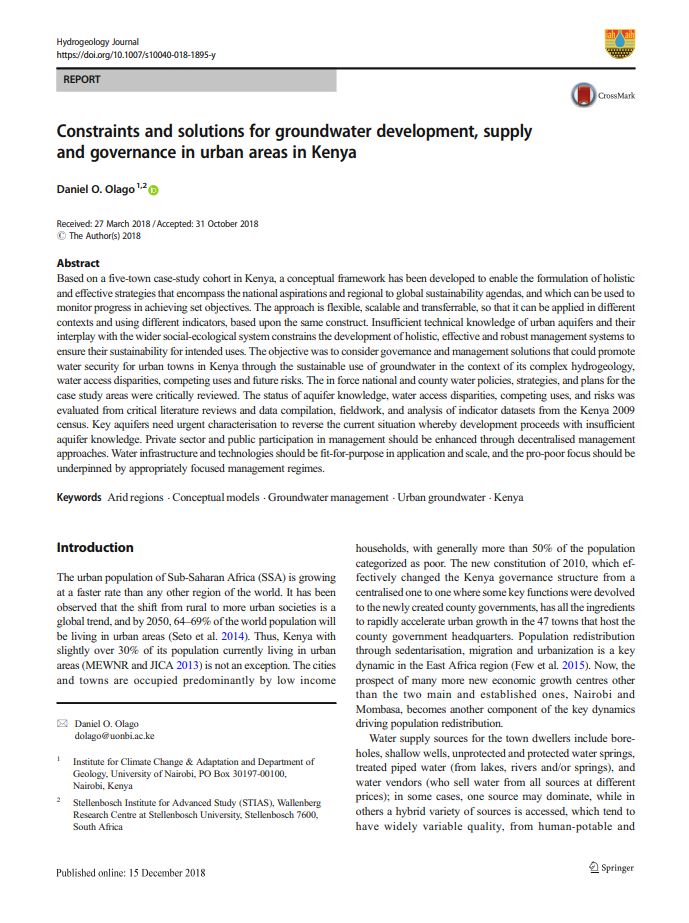Author: Daniel O. Olago
Based on a five-town case-study cohort in Kenya, a conceptual framework has been developed to enable the formulation of holistic and effective strategies that encompass the national aspirations and regional to global sustainability agendas, and which can be used to monitor progress in achieving set objectives. The approach is flexible, scalable and transferrable, so that it can be applied in different contexts and using different indicators, based upon the same construct. Insufficient technical knowledge of urban aquifers and their interplay with the wider social-ecological system constrains the development of holistic, effective and robust management systems to ensure their sustainability for intended uses. The objective was to consider governance and management solutions that could promote water security for urban towns in Kenya through the sustainable use of groundwater in the context of its complex hydrogeology, water access disparities, competing uses and future risks. The in force national and county water policies, strategies, and plans for the case study areas were critically reviewed. The status of aquifer knowledge, water access disparities, competing uses, and risks was evaluated from critical literature reviews and data compilation, fieldwork, and analysis of indicator datasets from the Kenya 2009 census. Key aquifers need urgent characterisation to reverse the current situation whereby development proceeds with insufficient aquifer knowledge. Private sector and public participation in management should be enhanced through decentralised management approaches. Water infrastructure and technologies should be fit-for-purpose in application and scale, and the pro-poor focus should be underpinned by appropriately focused management regimes.

